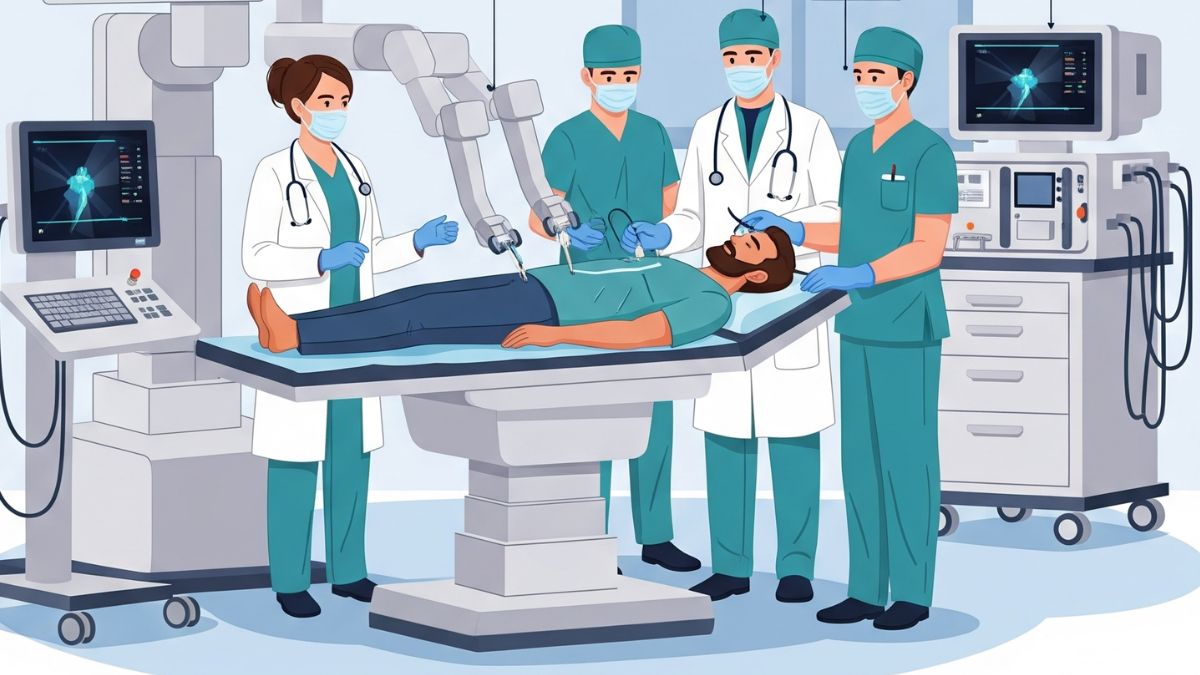Decoding Prostate Cancer Risk: It's More Than Just Age – Genetics & Lifestyle Play a Crucial Role
)
Understanding Prostate Cancer: A Growing Concern for South African Men
Prostate cancer is a significant health challenge for men across the globe, and South Africa is no exception. It's currently the fourth most common cancer affecting men in India, and while statistics specific to South Africa may vary, awareness and understanding are crucial for early detection and effective treatment. Often, prostate cancer develops without noticeable symptoms, particularly in its initial stages. This makes regular screening and proactive health management even more vital.
Beyond Age: The Complex Factors Influencing Risk
Traditionally, age has been considered the primary risk factor for prostate cancer. While the likelihood does increase with age, it's becoming increasingly clear that other factors play a substantial role. Modern research highlights the interplay of genetics, lifestyle choices, and environmental influences in determining an individual's susceptibility to this disease.
The Genetic Connection: Family History Matters
A family history of prostate cancer significantly elevates your risk. If your father, brother, or other close relatives have been diagnosed with the disease, you're at a higher chance of developing it yourself. This doesn't mean you're destined to get cancer, but it does warrant increased vigilance and more frequent screenings. Genetic testing is becoming increasingly available and can provide a more personalized risk assessment, although it's still a relatively complex and evolving field.
Lifestyle Choices: What You Can Control
Fortunately, many lifestyle factors are within your control and can significantly impact your prostate cancer risk. Here's a breakdown of key areas to focus on:
- Diet: A diet rich in fruits, vegetables, and whole grains, while limiting red meat and processed foods, is associated with a lower risk. Foods containing lycopene, like tomatoes, have been particularly highlighted for their potential protective effects.
- Exercise: Regular physical activity is strongly linked to reduced prostate cancer risk. Aim for at least 30 minutes of moderate-intensity exercise most days of the week.
- Weight Management: Obesity is a known risk factor. Maintaining a healthy weight through diet and exercise is essential.
- Smoking: Smoking has been linked to an increased risk of advanced prostate cancer and poorer outcomes. Quitting smoking is one of the best things you can do for your overall health.
Early Detection: The Key to Successful Treatment
Prostate cancer is highly treatable when detected early. The most common screening methods include:
- PSA Test (Prostate-Specific Antigen): A blood test that measures the level of PSA. Elevated levels *may* indicate prostate cancer, but can also be caused by other conditions.
- Digital Rectal Exam (DRE): A physical exam performed by a doctor to feel for any abnormalities in the prostate.
It's crucial to discuss the pros and cons of prostate cancer screening with your doctor to determine the best approach for your individual circumstances.
Seeking Expert Advice
Don't wait until you experience symptoms to take your prostate health seriously. Consult with a healthcare professional for regular check-ups and to discuss your personal risk factors. Early detection and intervention can significantly improve your chances of a positive outcome.






